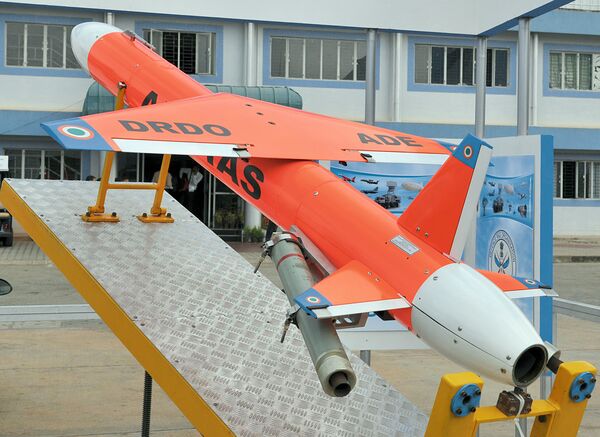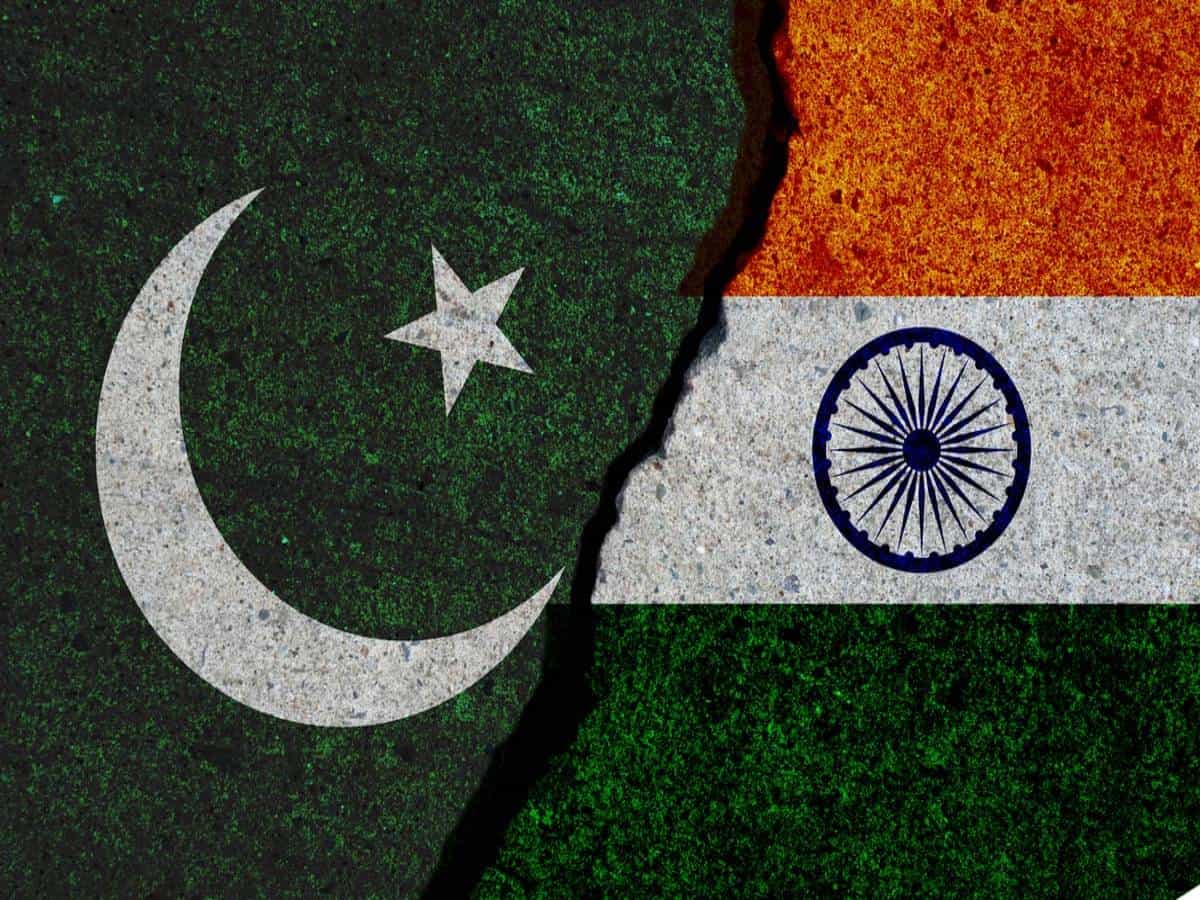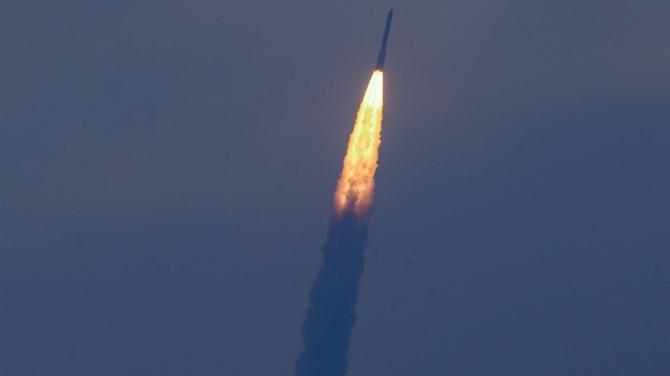SOURCE: RAUNAK KUNDE / NEWS BEAT / IDRW.ORG


In a major leap forward for indigenous radar technology and the Indian Air Force’s operational capability, the Su-30MKI fighter jets will be upgraded with the cutting-edge Virupaksha GaN-based AESA radar, designed specifically to detect and track stealth aircraft at long range. This will make the Su-30MKI the first 4.5-generation Indian fighter jet optimized to hunt stealth aircraft, enhancing its relevance in modern aerial warfare scenarios dominated by low-RCS platforms.
The Virupaksha radar, developed by the Defence Research and Development Organisation’s (DRDO) Electronics and Radar Development Establishment (LRDE), represents a significant advancement over the Su-30MKI’s existing N011M Bars passive electronically scanned array (PESA) radar. With an antenna diameter of 950 mm and approximately 2,500 GaN-based TRMs, the radar offers superior performance in range, resolution, and resistance to electronic countermeasures. GaN technology provides higher power efficiency, better thermal management, and increased reliability compared to Gallium Arsenide (GaAs)-based systems, enabling a smaller, lighter, and more capable radar system.
Continue readingSOURCE: RAUNAK KUNDE / NEWS BEAT / IDRW.ORG


India is fast-tracking the development of High-Altitude Long-Endurance (HALE) Unmanned Aerial Vehicles (UAVs) capable of launching swarm drones and loitering munitions from stand-off distances, according to sources close to idrw.org. The push comes as part of India’s broader strategy to bolster its indigenous defense capabilities and address evolving security challenges.
The Aeronautical Development Establishment (ADE), under the Defence Research and Development Organisation (DRDO), has proposed the development of a single turboprop-powered HALE-class UAV designed to carry a substantial weapons payload. However, the program has faced delays due to ongoing technical challenges with ADE’s Medium-Altitude Long-Endurance (MALE) UAVs, which have failed to meet the armed forces’ technical requirements. Sources indicate that these setbacks have prompted a reevaluation of priorities, with a renewed focus on HALE-class platforms.
Continue readingSOURCE: RAUNAK KUNDE / NEWS BEAT / IDRW.ORG


According to Anantha Krishnan MA, India’s indigenous defense capabilities are set to receive a significant boost with the development of an advanced variant of the Abhyas High-speed Expendable Aerial Target (HEAT), designed by the Defence Research and Development Organisation’s (DRDO) Aeronautical Development Establishment (ADE). According to sources, this upgraded version of Abhyas is in the advanced stages of development and could mark a transformative step in its operational utility by incorporating an integrated warhead, effectively transforming it into a high-speed kamikaze drone.
The new variant is being tailored for enhanced combat roles, with visible modifications already implemented. Notably, the nose cone of the Abhyas has been redesigned to include a ballast system, enabling it to accommodate the warhead payload. This evolution positions the platform as a versatile and cost-effective solution for precision strikes, offering a robust alternative to traditional aerial targets used for missile testing.
Continue readingSOURCE: AFI


In a striking testament to the Indian Army’s air defense prowess, a 9A33 Transporter Erector Launcher and Radar (TELAR) of the OSA-AKM surface-to-air missile (SAM) system has been spotted adorned with 13 kill marks, signifying the successful destruction of Turkish-made drones during Operation Sindoor. The kill marks, prominently displayed on the chassis of the Soviet-era system, highlight its critical role in thwarting Pakistan’s large-scale drone assaults on Indian territory, as reported in posts on X on May 19, 2025.
Operation Sindoor, launched on May 7, 2025, was a decisive Indian military response to the April 22, 2025, terror attack in Pahalgam, Jammu and Kashmir, which killed 26 people. The operation targeted terrorist infrastructure across nine sites in Pakistan and Pakistan-Occupied Jammu and Kashmir (PoJK), neutralizing over 100 terrorists. Pakistan retaliated on May 8 with a massive drone offensive, deploying approximately 300–400 Turkish-origin drones, including Asisguard Songar and Byker YIHA-III kamikaze models, to target 36 Indian military locations from Leh to Sir Creek.
Continue readingSOURCE: AFI


In a significant revelation, the Indian Army has disclosed for the first time that its T-72 main battle tanks were deployed during Operation Sindoor on May 7, 2025, to destroy Pakistani military posts and neutralize terrorist infiltration routes along the Line of Control (LoC). This marks a rare instance of armored units being utilized in such a high-intensity operation, underscoring the Army’s multi-domain approach to countering cross-border terrorism.
Operation Sindoor was launched as a decisive response to the April 22, 2025, terror attack in Jammu and Kashmir’s Pahalgam, which claimed 26 lives, including 25 Indians and one Nepali tourist. The operation targeted nine terrorist infrastructure sites in Pakistan and Pakistan-Occupied Jammu and Kashmir (PoJK), obliterating camps linked to groups like Lashkar-e-Taiba (LeT), Jaish-e-Mohammed (JeM), and Hizbul Mujahideen. Over 100 terrorists were eliminated in the precision strikes, which involved coordinated efforts from the Indian Army, Air Force, and Navy.
Continue readingSOURCE: AFI


In a significant stride towards self-reliance in defence manufacturing, Hindustan Aeronautics Limited (HAL) has successfully indigenised the Fuel Air Valve for the Jaguar aircraft, a critical component that enhances the aircraft’s operational efficiency. This development, announced under the aegis of the Ministry of Defence and the Department of Defence Production, marks another milestone in India’s Aatmanirbhar Bharat (self-reliant India) campaign.
The Fuel Air Valve, now produced domestically by HAL, plays a pivotal role in the Jaguar aircraft by facilitating the transfer of fuel from the external drop tank to the supply tank through pressurisation. This ensures a seamless fuel supply during missions, enhancing the aircraft’s range and endurance. By indigenising this component, India reduces its dependency on foreign imports, saving valuable foreign exchange and strengthening the national economy.
Continue readingSOURCE: AFI


As regional tensions simmer and the shadow of unresolved conflicts continues to loom large, strategic planners in New Delhi are increasingly recognizing the value of maintaining constant pressure on Pakistan—particularly on its military apparatus—in the months ahead. This sustained vigilance is not merely about deterrence but also about shaping the operational environment should a decisive response be necessitated in the future.
Modern military strategy places high importance on preparation and shaping the battlespace well before the first shot is fired. In this context, keeping Pakistan—especially its military—on heightened alert over a prolonged period serves multiple strategic objectives.
Continue readingSOURCE: IANS


In a crucial security and foreign policy briefing, the Parliamentary Standing Committee on External Affairs was informed that there was no nuclear signalling from Pakistan during the recent military standoff following Operation Sindoor, according to sources familiar with the matter.
The committee, chaired by Congress MP Shashi Tharoor, met on Monday to discuss the diplomatic and military fallout from Operation Sindoor — India’s targeted response to the Pahalgam terror attack, which claimed several lives and significantly escalated tensions with Pakistan.
Continue readingSOURCE: ANI


Lt Gen Sumer Ivan D’Cunha, Director General of Army Air Defence, on Monday highlighted the country’s military capabilities and stated that India possesses the arsenal capability of striking targets across the full depth of Pakistan in the backdrop of Operation Sindoor.
In an interview with ANI, Lt Gen D’Cunha said, “The whole of Pakistan is within range.” He stated that even if they relocate the Pakistan Army’s General Headquarters (GHQ) from Rawalpindi to regions like Khyber Pakhtunkhwa (KPK), they will have to “find a deep hole.”
Continue readingSOURCE: ANI


After the success of Operation Sindoor, Indian Army’s incharge of air defence Lt Gen Sumer Ivan D’Cunha revealed that during the Op Sindoor the Golden Temple management allowed the Indian Army to deploy air defence guns within the shrine to counter potential drone and missile threats from Pakistan. Lt General D’Cunha informed that the Golden Temple’s lights were switched off for the first time in history to facilitate better detection and engagement of enemy drones, which helped the Indian defence forces spot and engage enemy drones more clearly.
In an exclusive interview with ANI, Lieutenant General Sumer Ivan D’Cunha, Director General, Army Air Defence, said, “Fortunately, we visualised what they (Pakistan) were capable of doing. Realising that they would target it because they had no legitimate targets across the border. They were more interested in creating confusion, chaos internally, and hence, we visualised that they would target our civil population and our religious places of worship.
Continue readingSOURCE: PTI


Indian Space Research Organisation’s 101st mission from Sriharikota, an earth observation satellite onboard the agency’s trusted Polar Satellite Launch Vehicle (PSLV) rocket, could not be accomplished on Sunday following a pressure issue in the third stage of the launch vehicle, the space agency said.
Although the Polar Satellite Launch Vehicle (PSLV) made a textbook lift-off at the prefixed time of 5.59 am, the mission objectives, however, could not be achieved.
Continue readingSOURCE: PTI


Calling upon to form an international coalition against terrorism, India’s Ambassador to Israel JP Singh, has stressed that India’s Operation Sindoor against Pakistan is “paused” and “not over”, demanding that Islamabad should handover key terrorists Hafiz Saeed, Sajid Mir and Zakiur Rehman Lakhvi just like US did with one of the masterminds of 26/11 Mumbai terror attack, Tahawwur Hussain Rana.
Narrating the incidents leading up to India’s offensive, Mr Singh in an interview with Israeli TV channel i24 on Monday said that the operation was initially against terror groups in Pakistan.
Continue readingSOURCE: PTI


Government is considering amendments to the laws governing the nuclear power domain, including the sectoral regulator, to allow participation of private sector as India eyes to produce 100 GW atomic energy by 2047. Government sources said amendments were being considered to the Atomic Energy Act to allow private sector participation and the Civil Liability for Nuclear Damage Act to limit the liability on suppliers of equipment to build atomic energy plants.
The government is also considering regulatory reforms and is evaluating the model of Indian National Space Promotion and Authorization Center (INSPACe) which acts as the promoter and regulator for the space sector that was opened up for private participation in 2020. Finance Minister Nirmala Sitharaman announced opening up of the nuclear power sector which has been restricted to public sector companies. The Nuclear Power Corporation of India Limited operates atomic power plants across the country that contribute 8.7 GWe to the country’s energy mix.
Continue readingSOURCE: ANI


In a demonstration of India’s rising defence prowess, the Indian Army showcased the indigenous Akashteer system and upgraded L-70 Air Defence Guns, both of which played a decisive role in intercepting every missile and drone during Pakistan’s deadliest aerial assault on May 9-10.
Speaking to ANI about the upgraded air defence system’s competence, an L-70 Air Defence Gun operator said, “This gun system is very effective… We showed that we also have a system capable of destroying any target. It can track targets from a long distance and lock onto them. As soon as they enter the effective range, firing action is taken.”
Continue readingSOURCE: PTI


Bangladesh Home Affairs Adviser Lieutenant General (Retd) Md Jahangir Alam Chowdhury on Saturday said that Indian nationals found staying illegally in the country will be repatriated through proper diplomatic channels.
The adviser made these remarks after inaugurating the third floating Border Outpost in Satkhira, news agency Bangladesh Sangbad Sangstha (BSS) reported. Bangladesh does not engage in “push-ins like India but believes in resolving issues through diplomacy”, Chowdhury said, according to The Dhaka Tribune newspaper.
Continue reading